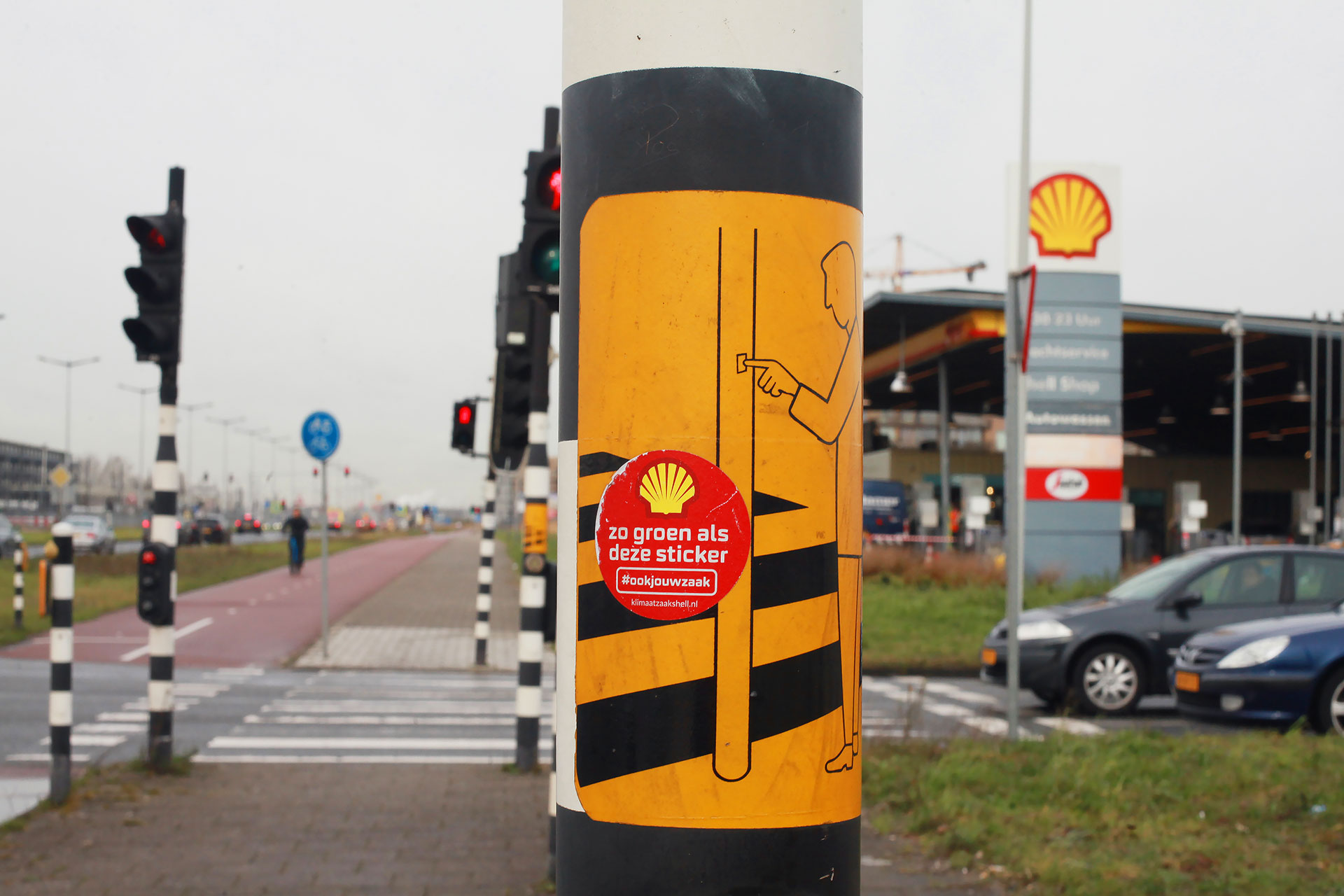A few days ago, trade magazine Campaign announced the Shell Group has launched a global media pitch. The budget today is being “held” by EssenceMediacom. Its size is somewhat vague, but amounts to several tens of millions of dollars. Some sources speak of 5 or 6 billion marketing investments. AdWeek keeps it at $240 million media budget.
Shell adds that this is an established procedure to ensure that “contracts are in line with commercial strategy and current needs”.
So what are they, those commercial strategy and needs? According to an article in The Guardian early this year, Shell’s actual spending on renewable energy is only a fraction of what the company claims. 98% of their output today is fossil fuel. Shell pumps 2.7 million barrels of oil out of the ground every that. Bam.
So do we flout this duty of care?
Shell was ordered by a Dutch court in 2021 to fulfil its duty of care and reduce emissions from its global operations by 45% by 2030.
This effectively admonished the oil industry to stop passing on the external effects of their activity to society. It was also an unmistakable signal that the industry should stop knowingly doing everything in its power to thwart the transition to sustainability. And just as the opiate, asbestos or tobacco industries for years have resisted like devils to holy water, Shell also promptly appealed… At the same time, Shell keeps on lying about the share of its efforts in ‘energy transition activities’ and pays lip service to the goals of the Paris Agreement on climate change.
Without going too deeply into the commitments Shell claims (check the overview at e.g. https://www.clientearth.org/projects/the-greenwashing-files/shell/), it continues to explore new oil and gas wells and has no plan to reduce the total amount of oil and gas it produces by 2030. Worse, this week Shell’s new CEO Wael Sawan brazenly scrapped the slow phase-out of oil and gas production reluctantly initiated under his predecessor.
Advertising: do we mean what we say?
When companies talk about ethical business practices and green growth. When there is a global consensus that curbing our CO2 emissions is crucial to keep our economy in a safe operating zone. When the advertising industry, through the likes of the 5 major global groups and the WFA (World Federation of Advertisers), claims to want to contribute to a sustainable economy. When the UK Advertising Standards Authority (ASA, say our JEP) just last week banned ads from Shell because of misleading sustainability claims… As a media agency, how do you reconcile that with a willingness to enter a prize competition to advertise at the cheapest possible price for an astronomical amount of money for a company whose main activity is to pump more and more CO2 into the atmosphere?
Here’s the suggestion: don’t participate in this bidding. Don’t allow yourself to be undressed. Maintain your dignity. Derail the pitch. This is a significant amount of money, but your company will not be in trouble if you let it pass. Instead, suggest Shell to finally invest this money in the transition to sustainability to which the court has obliged them. Better yet, invest it in marketing communications that encourage consumers to make sustainable choices. Helping the demand side grow, in short. Stimulate demand for those new sustainable products or services that Shell has to develop. Then the advertising sector need not be a victim either.
There are only a handful of international advertising groups. There are only a few people who need to take a stand. Who together just need to practice what they preach and state that they disagree with Milton Friedman’s long outdated idea that ‘the business of business is (just) business’. Who choose to accelerate the transition with their actions instead of slowing it down. There is money to be made on both sides. So growth may as well be responsible. It is just a matter of setting priorities. Not shirking our responsibility as experts in social norming. Not doing anything for money. Not to be complicit in pernicious activities. Surely it is too painful for words that AdWeek headlined just last week: ‘Most Media Agencies Won’t Admit They’re Pitching Shell – Firms pay lip service to sustainability commitments while vying for the oil giant’s $240 million business’.
Let us put our expertise in social norming to work for causes that are forward-looking. Let us help brands that choose truly sustainable solutions. Brands that change themselves or create change for others. Brands that do not thwart the sustainable transition, but accelerate it.
Raf van Raemdonck
CEO Bubka


